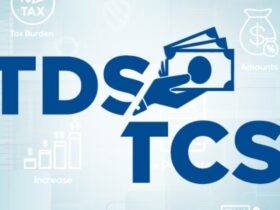The Canada Emergency Business Account (CEBA) has been a crucial lifeline for small and medium-sized businesses throughout the COVID-19 pandemic. This government-backed loan program aimed to help businesses maintain their operations, cover essential expenses, and navigate the challenging economic landscape. However, circumstances can change, and some businesses may face the unfortunate reality of having to close their doors. In this blog, we will explore what happens to a CEBA loan when a business closes, discussing the implications and considerations for borrowers in such situations.
Understanding CEBA Loan Basics
Before delving into what happens when a business closes, it’s essential to have a basic understanding of the CEBA loan program.
CEBA Loan Amount:
CEBA offers eligible businesses a loan of up to $60,000. This loan consists of an initial disbursement of $40,000, with an additional $20,000 available under specific conditions.
Interest-Free Feature:
One of the most attractive features of CEBA is its interest-free nature. As long as businesses meet certain criteria and deadlines, they do not have to pay interest on the loan.
Forgiveness Provision:
CEBA includes a loan forgiveness feature, allowing businesses to have a portion of the loan forgiven. Typically, $20,000 of the loan is forgivable, provided all eligibility criteria are met.
What Happens to a CEBA Loan When a Business Closes?
The fate of a CEBA loan when a business closes can vary depending on several factors, including the timing of the closure and the financial situation of the business. Let’s explore different scenarios to understand the implications for borrowers:
Business Closure Before Repayment Deadline:
If a business closes before the CEBA loan’s repayment deadline, it still has an obligation to repay the loan. The closure of the business does not automatically eliminate the loan debt. The funds were intended to help businesses cover expenses and maintain operations, and they remain a liability of the business.
In this scenario, the business should work with the financial institution through which it obtained the CEBA loan to determine the best approach for repaying the loan. This could involve paying off the loan in full if the business has the means to do so, or negotiating an alternative repayment plan. It’s crucial to stay in communication with the financial institution and seek their guidance on the best course of action.
Business Closure After Repayment Deadline:
If a business closes after the CEBA loan’s repayment deadline has passed, it may still be responsible for the loan repayment. The forgiveness feature of CEBA typically applies when the loan is repaid on time. Missing the repayment deadline could mean that the business will not be eligible for the $20,000 loan forgiveness, and the full loan amount must be repaid.
This scenario underscores the importance of understanding and meeting the program’s repayment deadlines. Businesses that close after the deadline have fewer options for loan forgiveness and may face additional financial challenges in repaying the entire loan amount.
Business Closure and Loan Forgiveness:
Some businesses that closed their doors prior to the repayment deadline may still be eligible for CEBA loan forgiveness. To achieve this, they must meet all the program’s eligibility criteria, including demonstrating financial hardship due to the pandemic and using the funds appropriately for operating expenses.
CEBA’s loan forgiveness feature can provide some relief to businesses that faced financial hardship and used the funds as intended, even if they ultimately had to close. In this case, the forgiven portion of the loan can be seen as a financial cushion for the business and its owners as they navigate the challenges of closing down.
Business Closure and Financial Hardship:
In situations where a business closes and experiences financial hardship, it’s essential to document the reasons for the closure and any economic challenges faced. This documentation may be valuable when dealing with the CEBA loan repayment.
The business should communicate with its financial institution and provide the necessary documentation to demonstrate the impact of the pandemic and financial hardship on their operations. In some cases, financial institutions may be open to negotiating the terms of repayment or considering alternative solutions to accommodate the business’s financial situation.
Personal Liability for CEBA Loan:
In certain cases, business owners may have personally guaranteed the CEBA loan, making them personally responsible for the loan even if the business closes. This can put personal assets and finances at risk.
Business owners should be aware of the terms of their CEBA loan agreement and whether they provided a personal guarantee. If personal liability exists, it’s essential to address it proactively with the financial institution and explore options to minimize personal financial exposure.
Impact on Business Credit:
The closure of a business and the handling of its CEBA loan can impact the business’s credit profile. It’s crucial for business owners to understand the potential consequences on their credit history and take steps to mitigate any negative effects.
Staying in communication with the financial institution, addressing outstanding obligations, and fulfilling any repayment agreements can help minimize the impact on the business owner’s credit.
Conclusion
The Canada Emergency Business Account (CEBA) has been a lifeline for countless businesses during the COVID-19 pandemic. However, the fate of a CEBA loan when a business closes depends on various factors, including the timing of the closure and the business’s financial situation. It’s essential for business owners to understand their obligations and work closely with their financial institution to address the loan and any associated personal liability.
CEBA’s loan forgiveness feature can provide some relief for businesses that meet all eligibility criteria, even in cases of closure. However, missing the loan repayment deadline may result in the loss of this forgiveness opportunity.
Navigating the closure of a business while managing outstanding financial obligations can be complex, and professional advice may be necessary. Business owners should consult with financial advisors, accountants, and legal professionals to ensure they make informed decisions and address their CEBA loan obligations appropriately.






























Leave a Reply